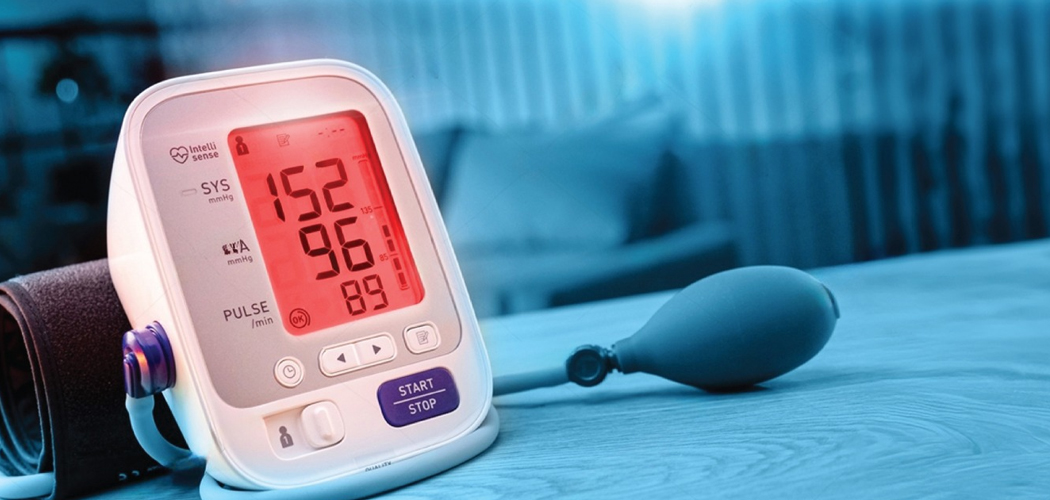Understanding Hypertension
A guide to awareness and prevention
What is Hypertension?
Hypertension, commonly known as high blood pressure, is a condition in which the force of your blood against your artery walls is consistently too high. This prolonged pressure can eventually cause serious health problems, such as heart disease, stroke, and kidney failure. Blood pressure is determined by the amount of blood your heart pumps and the amount of resistance to blood flow in your arteries. The more blood your heart pumps and the narrower your arteries, the higher your blood pressure. Normal Bp range systolic 120-90 / Diastolic 90-60 mm Hg.
Symptoms and Signs
Often, hypertension has no symptoms. Many people have high blood pressure for years without knowing it. That's why it's often called the 'silent killer'. However, some people may experience:
- Severe headaches
- Nosebleeds
- Fatigue or confusion
- Vision problems
- Chest pain
- Difficulty breathing
- Irregular heartbeat
- Blood in the urine
- Pounding in your chest, neck, or ears
Note: These symptoms aren't specific to hypertension and usually only occur when blood pressure has reached a dangerously high level. The best way to know if you have high blood pressure is to get regular blood pressure checks.
Potential Complications
Uncontrolled hypertension can lead to a range of serious health complications:
- Heart disease: Including heart failure, heart attack, and enlarged heart.
- Stroke: High blood pressure can damage and weaken blood vessels in the brain, leading to stroke.
- Kidney disease: Hypertension can damage the blood vessels in the kidneys, leading to kidney failure.
- Vision loss: High blood pressure can damage the blood vessels in the eyes, leading to vision loss.
- Sexual dysfunction: Hypertension can affect blood flow to the genitals, leading to erectile dysfunction in men and decreased libido in women.
- Peripheral artery disease (PAD): High blood pressure can damage the arteries in your legs and feet.
- Hypertensive crisis: This is a severe and sudden increase in blood pressure that can lead to stroke, heart attack, and kidney failure.
Household Remedies to Manage Hypertension
While not a substitute for medical treatment, these household remedies can help manage hypertension:
- Dietary Changes: Reduce sodium intake. Increase potassium intake through foods like bananas and sweet potatoes. Follow the DASH (Dietary Approaches to Stop Hypertension) diet.
- Regular Exercise: Aim for at least 30 minutes of moderate-intensity exercise most days of the week. This could include brisk walking, jogging, swimming, or cycling.
- Stress Management: Practice relaxation techniques like meditation, yoga, or deep breathing exercises.
- Limit Alcohol Consumption: If you drink alcohol, do so in moderation (up to one drink per day for women and up to two drinks per day for men).
- Quit Smoking: Smoking damages blood vessels and increases blood pressure.
- Maintain a Healthy Weight: Losing even a small amount of weight can help lower blood pressure.
- Monitor Blood Pressure at Home: Keep a log of your blood pressure readings and share them with your doctor.
Prevention Tips
Preventing hypertension involves adopting a healthy lifestyle:
- Eat a healthy diet: Focus on fruits, vegetables, and whole grains.
- Maintain a healthy weight: If you are overweight or obese, losing weight can help lower your blood pressure.
- Get regular exercise: Aim for at least 30 minutes of moderate-intensity exercise most days of the week.
- Limit sodium intake: Aim for less than 2.3gms of sodium per day.
- Limit alcohol consumption: If you drink alcohol, do so in moderation.
- Don't smoke: Smoking damages blood vessels and increases blood pressure.
- Manage stress: Practice relaxation techniques like meditation, yoga, or deep breathing exercises.
- Get regular checkups: See your doctor regularly for blood pressure checks.
Red Flag Signs: When to See a Doctor
Seek immediate medical attention if you experience any of the following, especially if you have a history of hypertension:
- Severe chest pain
- Severe headache with confusion or vision changes
- Difficulty breathing
- Sudden numbness or weakness in the face, arm, or leg
- Sudden loss of vision
- Difficulty speaking
- Seizures
These symptoms could indicate a hypertensive crisis or other serious complications requiring immediate medical intervention
Key Takeaway
Hypertension is a serious condition, but with awareness, proactive management, and a healthy lifestyle, you can take control and reduce your risk of complications. Regular check-ups and open communication with your doctor are key to maintaining a healthy blood pressure and a healthier you


